Discover MIT Technology Review Narrated
MIT Technology Review Narrated

MIT Technology Review Narrated
Author: MIT Technology Review
Subscribed: 2,348Played: 49,688Subscribe
Share
Description
Welcome to MIT Technology Review Narrated, the home for the very best of our journalism in audio. Each week we will share one of our most ambitious stories, from print and online, narrated for us by real voice actors. Expect big themes, thought-provoking topics, and sharp analysis, all backed by our trusted reporting.
160 Episodes
Reverse
Three years ago this week we launched this podcast on a mission to show the world how AI touches our everyday lives. It's been our great honor and privilege to make it through three seasons, a global pandemic, an unbelievable nineteen (19!!) award nominations, and a whole lot of tests and demos.
Goodbyes are very hard to say, so instead we'll leave you with some of the show's highlights and an invitation to follow us as we continue our journey with a new show called SHIFT. Sign up for updates at shiftshow.ai and subscribe wherever you get your podcasts.
Credits:
This series was created by Jennifer Strong and Emma Cillekens with the support of Gideon Lichfield and Michael Reilly. Its producers have been Emma Cillekens and Anthony Green. The editors have included Gideon Lichfield, Michael Reilly and Mat Honan with support from Karen Hao and Tate Ryan Mosley. You can thank Garret Lang and Jacob Gorski for the original music and excellent sound design. The weekly art was from Stephanie Arnett with album art from Eric Mongeon.
Thanks for listening.
Hidden away in our voices are signals that may hold clues to how we’re doing, what we’re feeling and even what’s going on with our physical health. Now, AI systems tasked with analyzing these signals are moving into healthcare.
We meet:
Lina Lakoczky-Torres, student at Menlo College
Angela Schmiede, Vice President of Menlo College.
Grace Chang, CEO of Kintsugi
David Liu, CEO of Sonde Health
Liam Kaufman, former CEO of Winterlight Labs.
Margaret Mitchell, Chief Ethics Scientist of Hugging Face
Bjoern Schuller, professor of artificial intelligence at Imperial College London
Credits:
This episode was reported by Hilke Schellmann, produced by Jennifer Strong, Emma Cillekens and Anthony Green, edited by Mat Honan and mixed by Garret Lang with original music by Garret Lang and Jacob Gorski. Artwork by Stephanie Arnett. Special thanks to the Knight Science folks at MIT for their support with this reporting.
AI is used in farming in some ways you might not expect, like for tracking the health of crops—from space. We travel from test farms to labs in the second installment of our series on agriculture, AI, and satellites.
We Meet:
Joseph Liefer, senior product manager of autonomy at John Deere
Julian Sanchez, director of emerging technology at John Deere
Shely Aranov, CEO of InnerPlant
Rod Kumimoto, CSO of InnerPlant
Credits:
This episode was reported and produced by Jennifer Strong, Emma Cillekens and Anthony Green. It was edited by Mat Honan, and mixed by Garret Lang, with original music by Garret Lang and Jacob Gorski. Artwork by Stephanie Arnett.
In this special episode we bring you a live taping between the "Godfather of AI" Geoffrey Hinton and MIT Technology Review's Senior Editor for AI Will Douglas Heaven. This conversation was recorded at EmTech Digital, our signature AI event, in the MIT Media Lab.
Credits:
This episode was recorded in front of a live audience in Cambridge, Massachusetts with special thanks to Will Douglas Heaven, Amy Lammers and Brian Bryson. It was produced by Jennifer Strong and Emma Cillekens, directed by Erin Underwood, and edited by Mat Honan.
This episode, we get an insider's look at the ongoing chip war from the person who wrote the book on it, Chris Miller, professor at Tufts University and the author of Chip War. Join us for a live conversation from the MIT Media Lab at Tech Review’s Future Compute conference.
Credits:
This episode was recorded and produced by Jennifer Strong with help from Emma Cillekens and Anthony Green. We’re edited by Mat Honan and mixed by Garret Lang, with original music from Garret Lang and Jacob Gorski. Artwork from Stephanie Arnett.
I Was There When is an oral history project that’s part of the In Machines We Trust podcast. It features stories of how breakthroughs and watershed moments in artificial intelligence and computing happened, as told by the people who witnessed them.
In this episode we meet Cognitive Scientist Gary Marcus.
CREDITS:
This project was produced by Jennifer Strong, Emma Cillekens, and Anthony Green. It was edited by Mat Honan and mixed by Garret Lang with original music by Jacob Gorski. The art is from Eric Mongeon and Stephanie Arnett. It was recorded at the TED Conference in Vancouver, Canada.
LINKS:
https://blog.ted.com/the-astounding-new-era-of-ai-notes-on-session-2-of-ted2023/
https://www.technologyreview.com/topic/artificial-intelligence/
https://podcasts.apple.com/us/podcast/humans-vs-machines-with-gary-marcus/id1532110146
The term ‘smart city’ paints a picture of a tech-enabled oasis—powered by sensors of all kinds. But we’re starting to recognize what all these tools might mean for privacy. In this episode, we meet a researcher studying how this is being applied in Iran and visit one of the nation’s top smart cities, to learn how its efforts there have evolved over time.
We Meet:
University of Oxford and Article19 Human Rights Researcher Mahsa Alimardani
City of Las Vegas Chief Innovation Officer Michael Sherwood
City of Hope Director of Campus Support Operations Mark Reed
Sounds:
How will artificial intelligence change the cities we live in? - BBC Ideas via YouTube
https://www.youtube.com/watch?v=UXxyCBimRyM
‘Smart’ cities promise economic and environmental benefits to the developing world - CBC News via YouTube
https://www.youtube.com/watch?v=u08A7yiTmu4
Singapore is building a city in China - CNBC via YouTube
https://www.youtube.com/watch?v=iP11XeIV1ZA
Global Smart Cities - The China Current via YouTube
https://www.youtube.com/watch?v=-qmiqHWD6Uc
Footage appears to show Iranian riot police confronting students at university in Tehran - The Guardian via YouTube
https://www.youtube.com/watch?v=BgQshPJohmg
China: facial recognition and state control - The Economist via YouTube
https://www.youtube.com/watch?v=lH2gMNrUuEY
Facial recognition: Concerns over China's widespread surveillance
https://www.youtube.com/watch?v=CT6KEy_QXvM
Credits:
This episode was reported and produced by Jennifer Strong and Anthony Green with help from Emma Cillekens. It was edited by Mat Honan, and mixed by Garret Lang, with original music by Garret Lang and Jacob Gorski. Artwork by Stephanie Arnett.
The best definitions of AI are vague, largely lack consensus and represent a huge challenge for lawmakers and legal scholars looking to regulate it. But back to back breakthroughs and rapid adoption of generative AI tools are making it feel a lot more real to everybody else. We examine how it’s possible that alone might be enough to push conversations about ethics further into focus.
We Meet:
MIT Technology Review Senior AI Reporter Melissa Heikkilä
Mozilla President Mark Surman
IBM Chief Privacy Officer Christina Montgomery
United Nations AI Advisor Neil Sahota
Sounds:
Advances in artificial intelligence raise new ethics concerns - PBS NewsHour via YouTube https://youtu.be/l5nTlHeqYOQ
He loves artificial intelligence. Hear why he is issuing a warning about ChatGPT - CNN via YouTube https://youtu.be/THJysHMi81c
Credits:
This episode was reported and produced by Jennifer Strong and Anthony Green with help from Emma Cillekens and Melissa Heikkilä. It was edited by Mat Honan, and mixed by Garret Lang, with original music by Garret Lang and Jacob Gorski. Artwork by Stephanie Arnett.
This episode we meet people building next generation tools for creativity who are thinking about how these AI models should be trained and deployed in order to be both useful and fair to artists.
We hear from:
Artist Holly Herndon
Adobe CTO Digital Media Ely Greenfield
Soundful CEO Diaa El All
Links:
https://www.ted.com/talks/holly_herndon_what_if_you_could_sing_in_your_favorite_musician_s_voice
https://www.technologyreview.com/2023/02/03/1067786/ai-models-spit-out-photos-of-real-people-and-copyrighted-images/
https://www.technologyreview.com/2022/12/16/1065247/artists-can-now-opt-out-of-the-next-version-of-stable-diffusion/
Credits: This episode was produced by Anthony Green with help from Emma Cillekens. It was edited by Jennifer Strong and Mat Honan, mixed by Garret Lang, with original music from Jacob Gorski.
We're so excited this episode has been selected as a New York Festivals finalist! Please enjoy this encore edition and we'll see you back next week!
Digital twins of humans capture the physical look and expressions of real humans. Increasingly these replicas are showing up in the entertainment industry and beyond and it gives rise to some interesting opportunities as well as thorny questions.
We speak to:
Greg Cross, CEO and co-founder of Soul Machines
Credits: This episode was produced by Anthony Green with help from Emma Cillekens. It was edited by Jennifer Strong and Mat Honan, mixed by Garret Lang, with original music from Jacob Gorski.
I Was There When is an oral history project that’s part of the In Machines We Trust podcast. It features stories of how breakthroughs and watershed moments in artificial intelligence and computing happened, as told by the people who witnessed them.
In this episode we meet Marc Raibert, the founder and chairman of Boston Dynamics.
CREDITS: This project was produced by Jennifer Strong, Anthony Green and Emma Cillekens. It was edited by Mat Honan and mixed by Garret Lang, with original music by Jacob Gorski. Artwork by Eric Mongeon.
VIDEOS:
Spot
https://www.youtube.com/watch?v=7atZfX85nd4&t=17s
https://www.youtube.com/watch?v=6VUQHrWhoqg
Atlas
https://www.youtube.com/watch?v=-e1_QhJ1EhQ&t=5s
Big Dog
https://www.youtube.com/watch?v=xqMVg5ixhd0
One Legged Robot (Hopping robot)
https://www.youtube.com/watch?v=Bd5iEke6UlE&t=16s
Computers are ranking the way people look—and the results are influencing the things we do, the posts we see, and the way we think.
Ideas about what constitutes “beauty” are complex, subjective, and by no means limited to physical appearances. Elusive though it is, everyone wants more of it. That means big business and increasingly, people harnessing algorithms to create their ideal selves in the digital and, sometimes, physical worlds. In this episode, we explore the popularity of beauty filters, and sit down with someone who’s convinced his software will show you just how to nip and tuck your way to a better life.
Reporting links:
https://www.technologyreview.com/2023/03/13/1069649/hyper-realistic-beauty-filters-bold-glamour/
https://www.technologyreview.com/2022/08/19/1057133/fight-for-instagram-face/
We meet:
Shafee Hassan, Qoves Studio founder
Lauren Rhue, Assistant Professor of Information Systems at the Robert H. Smith School of Business
Credits:
This episode was reported by Tate Ryan-Mosley, and produced by Jennifer Strong, Emma Cillekens, Karen Hao and Anthony Green. We’re edited by Michael Reilly and Bobbie Johnson.
How we train fighter pilots—both real and artificial—is undergoing a series of rapid changes. In order for these systems to be useful we need to trust them, but figuring out just how, when and why remains a massive challenge. In this second of a two-part series, we look at how AI is being used to teach human pilots to perform some of the most dangerous and difficult maneuvers in aerial combat, and we experience synthetic dogfighting first hand.
We Meet:
Tom "T-Mac" Mackie, Director of Red6
Chris Cotting, Director Research, US Air Force Test Pilot School
Bill Gray, Chief Test Pilot, US Air Force Test Pilot School
Daniel Robinson, Founder & CEO Red6
Credits:
This episode was reported and produced by Jennifer Strong, Anthony Green and Emma Cillekens. It was edited by Mat Honan, and mixed by Garret Lang, with original music by Garret Lang and Jacob Gorski. Art by Stephanie Arnett.
A boy wrote about his suicide attempt. He didn’t realize his school's software was watching.
While schools commonly use AI to sift through students' digital lives and flag keywords that may be considered concerning, critics ask at what cost to privacy.
We Meet:
Jeff Patterson, CEO of Gaggle
Mark Keierleber, investigative reporter at The 74
Teeth Logsdon-Wallace, student
Elizabeth Laird, director of Equity in Civic Technology at Center for Democracy & Technology
Sounds From:
"Your Heart is a Muscle the Size of Your Fist" from the band Ramshackle Glory's 2011 album Live the Dream.
"Spying or protecting students? CBS46 Investigates school surveillance software" from CBS46 in Atlanta, GA on February 14, 2022.
"Student Surveillance Software: Schools know what your child is doing online. Do you?" from WSPA7 News in Greenville, SC on May 5, 2021.
"Spying or protecting students? CBS46 Investigates school surveillance software" from News 5 in Cleveland, OH on February 5, 2020.
Credits:
This episode was produced by Anthony Green and Emma Cillekens with reporting from Mark Keierleber. It was edited by Jennifer Strong and Michael Reilly, and mixed by Garret Lang with original music from Jacob Gorski. Art by Stephanie Arnett.
https://www.theguardian.com/education/2021/oct/12/school-surveillance-dragnet-suicide-attempt-healing
https://www.the74million.org/contributor/mark-keierleber/
You can support our journalism by going to http://www.techreview.com/subscribe.
We asked ChatGPT to summarize this episode and this is what it wrote:
"In the episode, the host discussed the increasing use of AI language models like ChatGPT in newsrooms. The host explained that ChatGPT, a large language model developed by OpenAI, is being used to automate tasks such as data analysis and writing, freeing up time for journalists to focus on more in-depth reporting. The host interviewed experts in the field who highlighted the benefits of using AI technology in newsrooms, including increased efficiency and consistency, as well as the potential to improve the accuracy and speed of reporting. However, the experts also discussed the challenges that come with using AI in journalism, such as issues around bias and accountability, and the need for human oversight to ensure ethical and accurate reporting. The episode concluded by exploring the future of AI in journalism, and how it will continue to shape the way news is produced and consumed."
The episode was written by people.
Links:
https://www.technologyreview.com/2023/01/31/1067436/could-chatgpt-do-my-job/
https://www.technologyreview.com/2023/01/27/1067338/a-watermark-for-chatbots-can-spot-text-written-by-an-ai/
We meet:
Mat Honan, MIT Technology Review
Jonah Peretti, Buzzfeed
Sayash Kapoor, Princeton University
Francesco Marconi, Applied XL
Credits:
This episode was produced by Anthony Green and Emma Cillekens, and edited by Jennifer Strong and Mat Honan. It was mixed by Garret Lang with original music from Garret Lang and Jacob Gorski. Artwork by Stephanie Arnett.
We're joined on stage by two startup founders working to bring automation to smaller scale farms. A live conversation from Lisbon, Portugal taped at one of the world's largest tech conferences, Web Summit.
We meet:
Praveen Penmetsa, CEO of Monarch Tractor
Barry Lunn, CEO of Provizio AI
Credits:
This episode was recorded and produced by Jennifer Strong with help from Emma Cillekens and Anthony Green. We’re edited by Mat Honan and mixed by Garret Lang, with original music from Garret Lang and Jacob Gorski. Artwork from Stephanie Arnett.
Our reporting about farming, AI and satellites turned into three episodes of this podcast, which you can find linked here in the show notes, and as part of this reporting we also toured a satellite factory in downtown San Francisco, called Planet Labs. This week we bring you along for one of our audio postcards to hear how these satellites are built and tested.
We meet:
Jacob Stern, director of test engineering at Planet Labs
Credits:
This episode was produced by Jennifer Strong with help from Anthony Green and Emma Cillekens. It was edited by Mat Honan and mixed by Garret Lang, with original music from Garret Lang and Jacob Gorski. Art direction by Stephanie Arnett.
A panel of luminaries join us live on stage at MIT Technology Review’s flagship conference, EmTech MIT, and discuss the path forward for AI research.
We Meet:
Will Douglas Heaven, Senior Editor of AI at MIT Technology Review
Ashley Llorens, Vice President & Managing Director at Microsoft Research
Raia Hadsell, Senior Director of Research and Robotics at DeepMind
Yann LeCun, NYU Professor, VP & Chief AI Scientist at Meta
Credits:
This episode was recorded in front of a live audience at the MIT Media Lab in Cambridge, Massachusetts with special thanks to Will Douglas Heaven, Amy Lammers and Brian Bryson. It was produced by Jennifer Strong, Emma Cillekens and Anthony Green, directed by Erin Underwood, edited by Mat Honan and mixed by Garret Lang.
From chess to Jeopardy to e-sports, AI is increasingly beating humans at their own games. But that was never the ultimate goal. In this episode we dig into the symbiotic relationship between games and AI. We meet the big players in the space, and we take a trip to an arcade.
We Meet:
Julian Togelius
Will Douglas-Heaven
David Silver
David Fahri
We Talked To:
Julian Togelius
Will Douglas-Heaven
Karen Hao
David Silver
David Fahri
Natasha Regan
Sounds From:
Jeopardy 2011-02:The IBM Challenge
https://archive.org/details/Jeopardy.2011.02.The.IBM.Challenge/Jeopardy.2011.02.16.The.IBM.Challenge.Day.3.HDTV.XviD-FQM.avi
Garry Kasparov VS Deep Blue 1997 6th game (Kasparov Resigns)
https://www.youtube.com/watch?v=EsMk1Nbcs-s
Attack Like AlphaZero: The Power of the King
https://www.youtube.com/watch?v=c0JK5Fa3AqI
Miracle Perfect Anti Mage 16/0 - Dota 2 Pro Gameplay
https://www.youtube.com/watch?v=59KnNcU9iKc
DOTA 2 - ALL GAME-WINNING Moments in The International History (TI1-TI9)
https://www.youtube.com/watch?v=RJcNbuASl-Y
Credits:
This episode was reported by Jennifer Strong and Will Douglas Heaven and produced by Anthony Green, Emma Cillekens and Karen Hao. We’re edited by Niall Firth, Michael Reilly and Mat Honan. Our mix engineer is Garret Lang. Sound design and music by Jacob Gorski.
AI is used in farming in some ways you might not expect, like for tracking the health of crops—from space. We travel from test farms to labs in the second installment of our series on agriculture, AI, and satellites.
We Meet:
Joseph Liefer, senior product manager of autonomy at John Deere
Julian Sanchez, director of emerging technology at John Deere
Shely Aranov, CEO of InnerPlant
Rod Kumimoto, CSO of InnerPlant
Credits:
This episode was reported and produced by Jennifer Strong, Emma Cillekens and Anthony Green. It was edited by Mat Honan, and mixed by Garret Lang, with original music by Garret Lang and Jacob Gorski. Artwork by Stephanie Arnett.




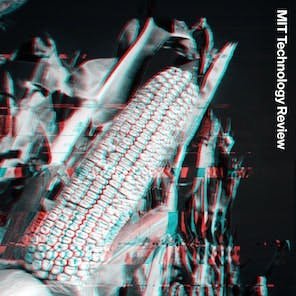
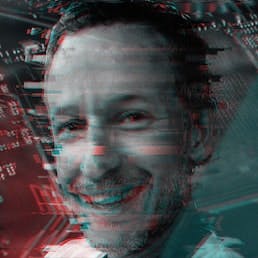
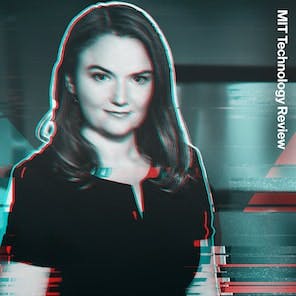
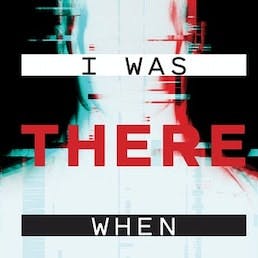



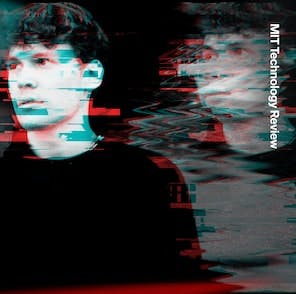
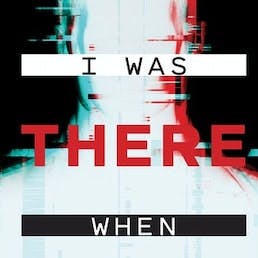







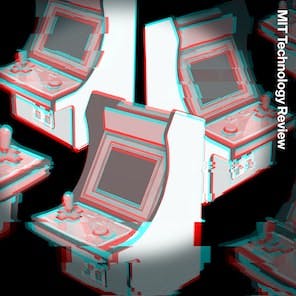




Our website https://truesides.com/covers these trends and more, keeping readers informed about the evolving tech landscape.
Aking (https://akingin.online/) is your go-to hub for the latest in tech, offering quick and concise reviews, insights on trending apps, and coverage of the hottest games. With in-depth articles on top tech products and emerging trends, Aking keeps you ahead of the curve, delivering everything you need to stay informed about the digital world’s newest gadgets and must-try apps.
Essay writing services can be a helpful resource for students facing tight deadlines or struggling with complex topics. It is important to remember, though, that these services should complement your own learning rather than replace it. Engaging with the writing process helps develop critical thinking and https://canadianwritings.com/ communication skills that are invaluable in both academic and professional settings. If you decide to use an essay service, try to understand the structure and ideas presented, and use them as a stepping stone for your own writing.